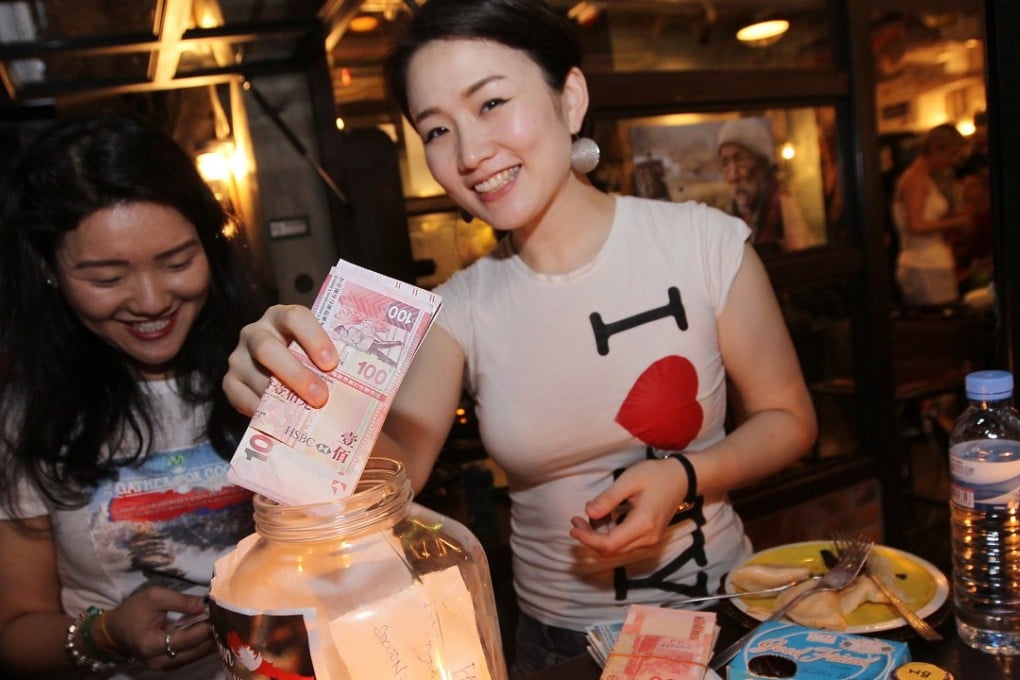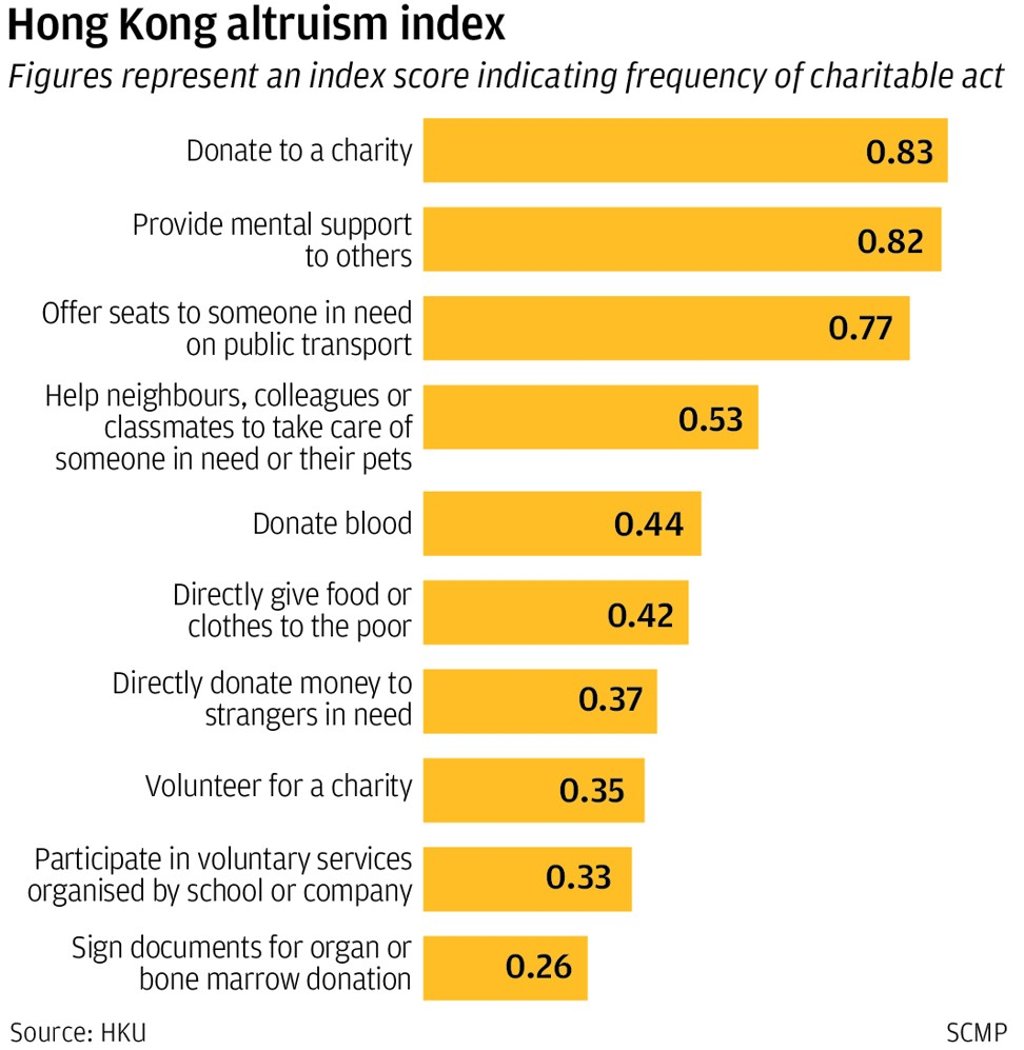How generous is Hong Kong? Above average, according to HKU survey on donations and charitable work
Altruism index mark of 5.2 out of 10 is small dip from year before, but expert says this is still better than other regions worldwide

Hongkongers have scored a pass mark in generosity, with most residents donating money to charities and almost half taking part in volunteer work in the past year, according to a survey.
The altruism poll, conducted by the University of Hong Kong, found that 83.5 per cent of respondents had donated money to charities, while 47.3 per cent said they did volunteer work.
Researchers converted data on the frequency of charitable acts into an index and found that unselfish Hongkongers scored 5.2 out of 10, a slight drop from 5.25 in 2016.
The results were announced on Tuesday by the Hong Kong Jockey Club Centre for Suicide Research and Prevention, which operates under the university.
